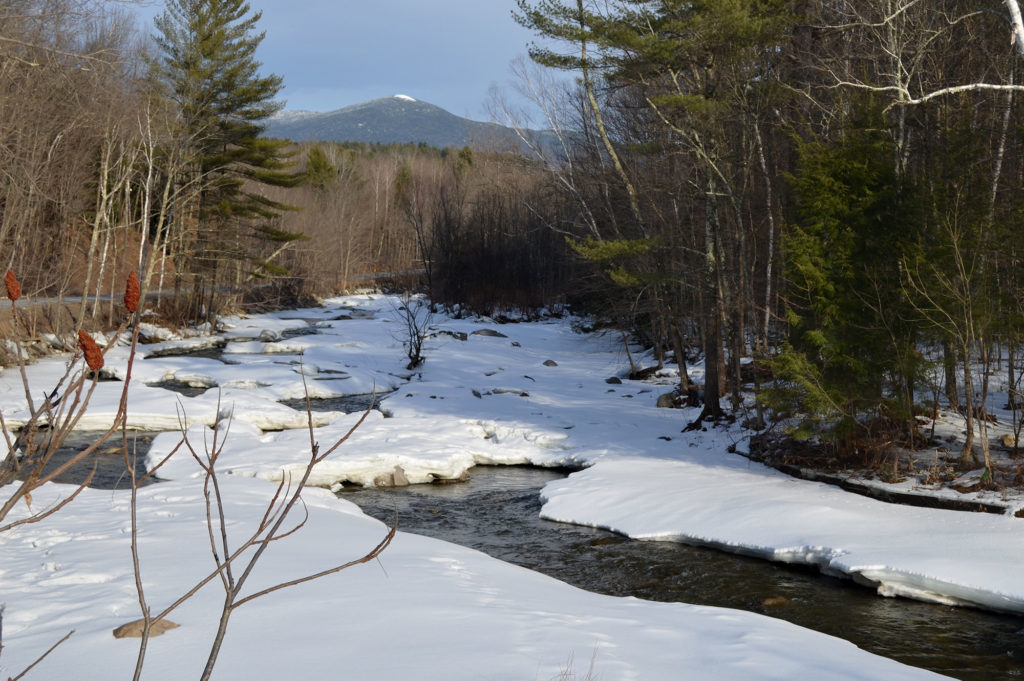
Hiking preparedness is crucial in all seasons, but especially so in cold and unpredictable winter. GMC recommends the “10 Essentials” for any hike: nutrition, hydration, insulation, illumination, navigation, first aid supplies, fire, repair kit, emergency shelter, and sun protection. Here’s how to make this list work for you in winter conditions, along with some pro tips.
Nutrition: Bring plenty of food! Winter hiking burns a lot of calories. Pack extra bars or trail mix in case you’re out longer than expected. Pro tip: Some energy bars may be prone to freezing, so think about bite-size snacks like trail mix. Carrying bars close to your body will help, too.
Hydration: Two liters of water is probably adequate for most day hikes. Pro tip: Insulate with an old sock, and carry the bottle upside down to keep the cap from freezing (the highest water freezes first).
Insulation: In addition to synthetic base layers, warm middle layers, and a waterproof outer layer, be sure to pack spare clothing layers. Pro tip: You haven’t packed enough unless there’s a layer left that you never needed to use!
Illumination: Bring a head lamp (to keep your hands free) with spare batteries, even if you’re only planning a day hike. If you can’t easily change batteries in the dark with cold fingers (try it at home), an extra light will be better than spare batteries. Pro tip: Lithium batteries last much longer than alkaline batteries in the cold.
Navigation aids: Cell phone batteries can die quickly in the cold, so a paper map, compass, and GPS are far more reliable. Pro tip: Practice using them until it’s easy! You can find videos online or participate in a workshop.
First Aid Supplies: Everyone in your group should carry a complete first aid kit in case you get separated. Pro tip: Sign up for a Wilderness First Aid class to gain confidence in backcountry emergencies!
Fire: Waterproof matches, lighter or flint. Don’t assume you can start a fire with ice-coated and snowy wood until you’ve done it a few times. Pro tip: Pack some Vaseline-covered cotton in a prescription bottle for a fire starter.
Repair kit: Multi-tool, or knife and duct tape. Pro tip: Use your hiking pole as the core to make a small roll of duct tape so it’s always handy.
Emergency Shelter: Pack a tarp, tent, or bivy sack, even for day hikes. Pro tip: A large contractor trash bag is an inexpensive option in a pinch.
Sun Protection: Sunglasses and sunscreen are all the more important in cold temps. Winter sun reflecting from snow can cause sunburn and snow blindness, and you’re unlikely to notice an incoming sunburn.
Review more information on winter hiking and the 10 Essentials.
This post originally appeared in the Winter 2020 edition of the Long Trail News under the headline “Winter Hiking Safety.”



















Great tips! I especially appreciate the reminder to pack extra layers. Staying warm is key, and it can make a huge difference on those chilly hikes. Thanks for sharing!